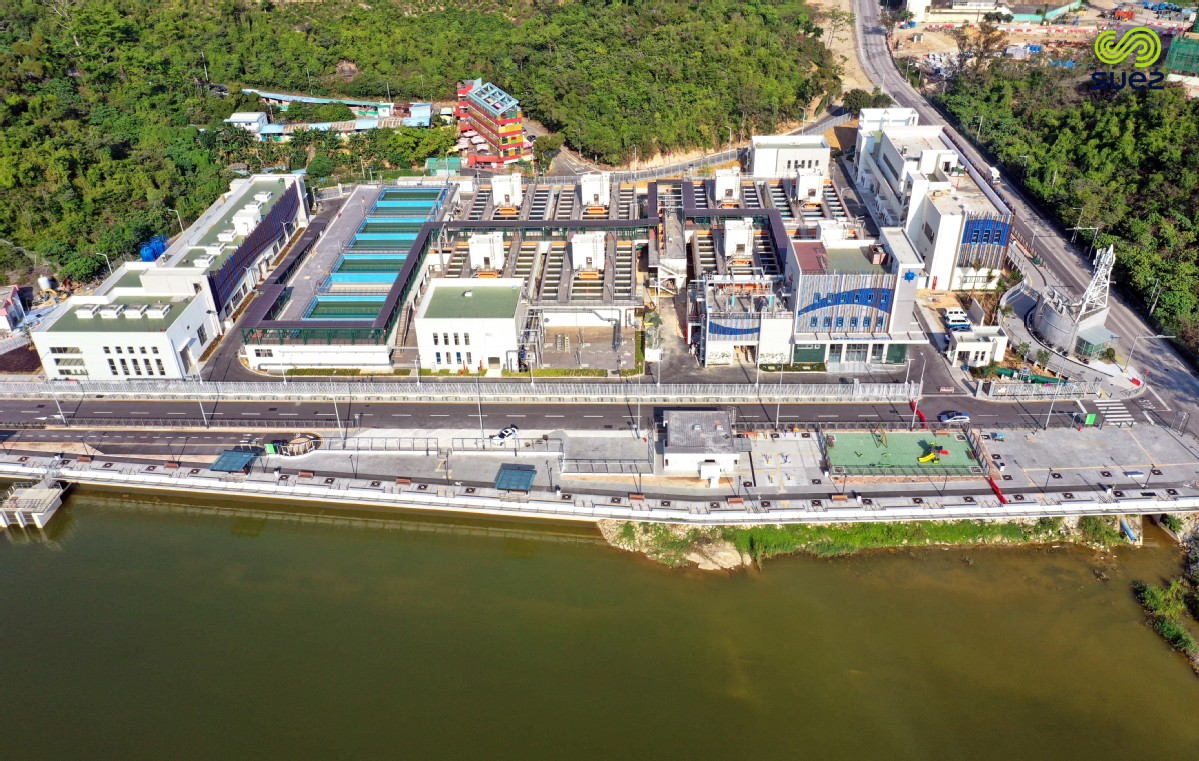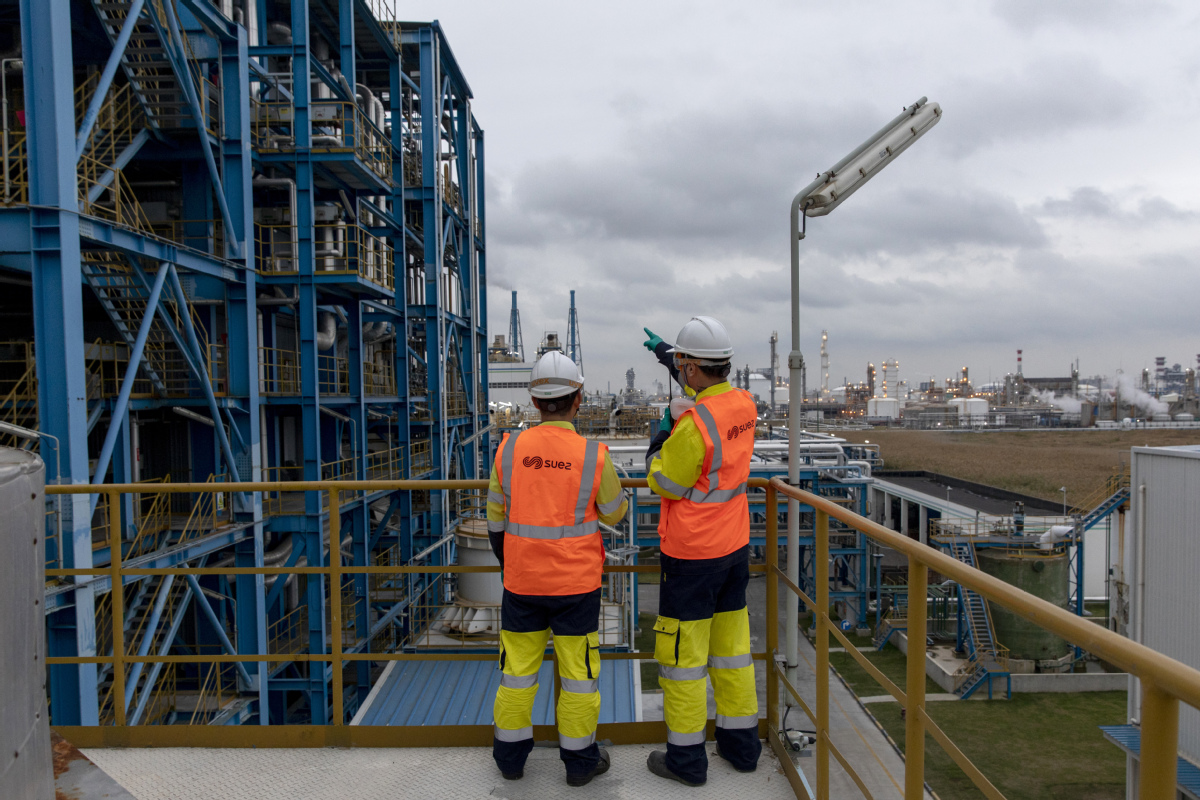Suez does its part for China's environmental goals

Project success
So far, Suez has carried out more than 70 water and waste contracts with local partners in more than 30 Chinese cities and regions including Macao, Shanghai, Chongqing, Suzhou, Jiangsu province, Tianjin and Qingdao.
Suez, through its subsidiary Macao Water, has been delivering drinking water services to Macao since the 1980s. Leveraging the group's global expertise, its smart solutions have not only improved water quality and operational efficiencies, but it has also reduced resource consumption, saving 2 million cubic meters of water annually – equivalent to the annual water consumption of 3,200 households. Its newly commissioned water treatment plant has also been accredited as the first One-Star Green Label building in Macao for having reduced its carbon footprint through emissions control and for its improved energy efficiency.

At Shanghai Chemical Industry Park, Suez has built and operated a wastewater treatment plant which produces desalinated water for reuse in production, enabling the park to recycle 97 percent of the water used; in the hazardous waste treatment plant, the steam produced is fed back into the industrial process. This has helped to reduce carbon emissions by 66,000 tons annually. Additionally, Suez has applied its patented Libellule Zone® (Dragonfly) technology to build an artificial wetland. It is one of the first in China to use wetlands to treat wastewater. Today, its integrated environmental solutions deployed in the SCIP have helped it become the top chemical park in China and a global model of best practices in the eco-friendly and circular economy.
In Chongqing, Suez has developed its environmental projects on a public-private partnership basis. Its involvement has expanded from water supply to sewage, sludge and industrial wastewater treatment, with total investment of over 4 billion yuan. Its sewage treatment plants are self-sufficient in terms of power, which utilizes gravity to drive generators. These facilities help to reduce the consumption of power and water as well as other resources, and are expected to save about 11,000 metric tons of CO2 emissions every year.
In addition, the group has built and operated sludge drying and hazardous waste treatment projects at Suzhou Industrial Park in Jiangsu province, becoming a template for supporting the circular economy through third-party environmental solutions. The company has also developed an innovative wastewater solution in Dalian, Liaoning province, in an effort to protect the ecology and biodiversity in the Bohai Sea region.

In terms of managing the relationship with local partners, Giros said win-win cooperation and trust-based relationships create success.
"With our partners we share values as well as a commitment to the circular economy and sustainable development. Our commercial teams prioritize developing an in-depth understanding of potential partners," Giros said.
"The win-win and listen-first approach allow our businesses to run smoothly and create opportunities for contract extensions."
Inclusivity
As a company with more than 160 years of history and more than 90,000 employees around the world, Suez is promoting its global ambitions of inclusion and diversity.
The ambition is not a question of constraints or social responsibility, but concerns business drivers, Giros said, adding the group has gender diversity on its inclusion program.
Women hold more than 28 percent of Suez's management positions globally and 36 percent in China.
"We have great female talent and this mirrors our customers. If we want to create something intelligent for the future, we need to count on women not only in the workforce, but also in management science."
Women's participation creates different relationships among teams and contributes views that help business adapt to the fast-changing society, especially in the environment sector, Giros said.




































